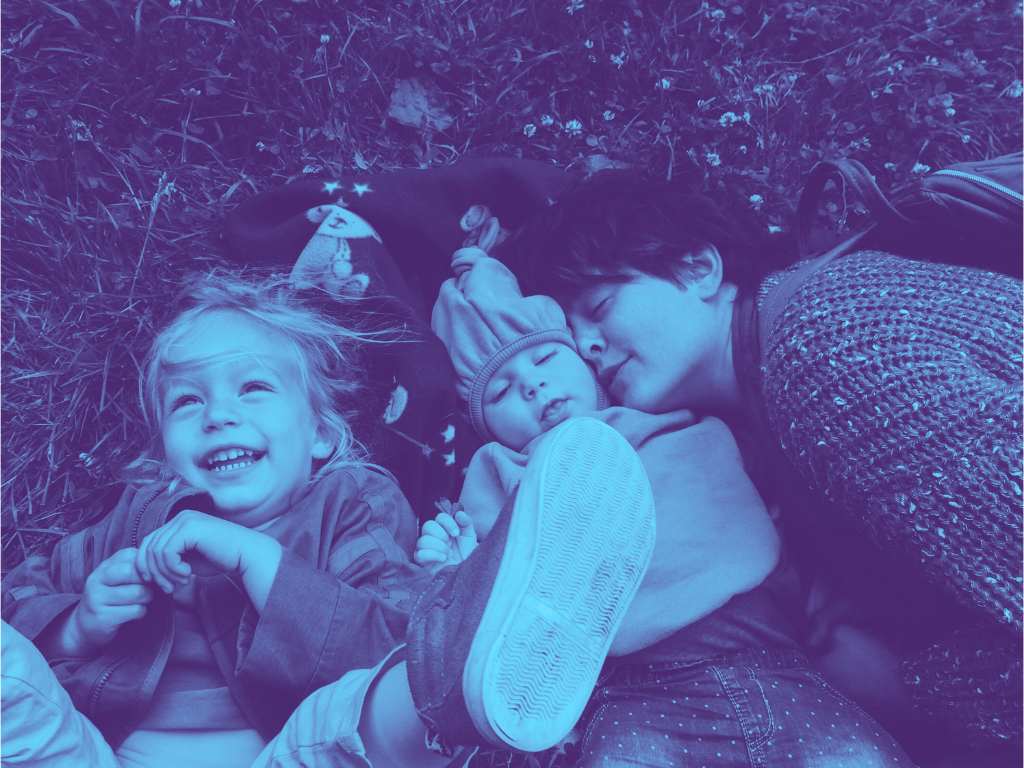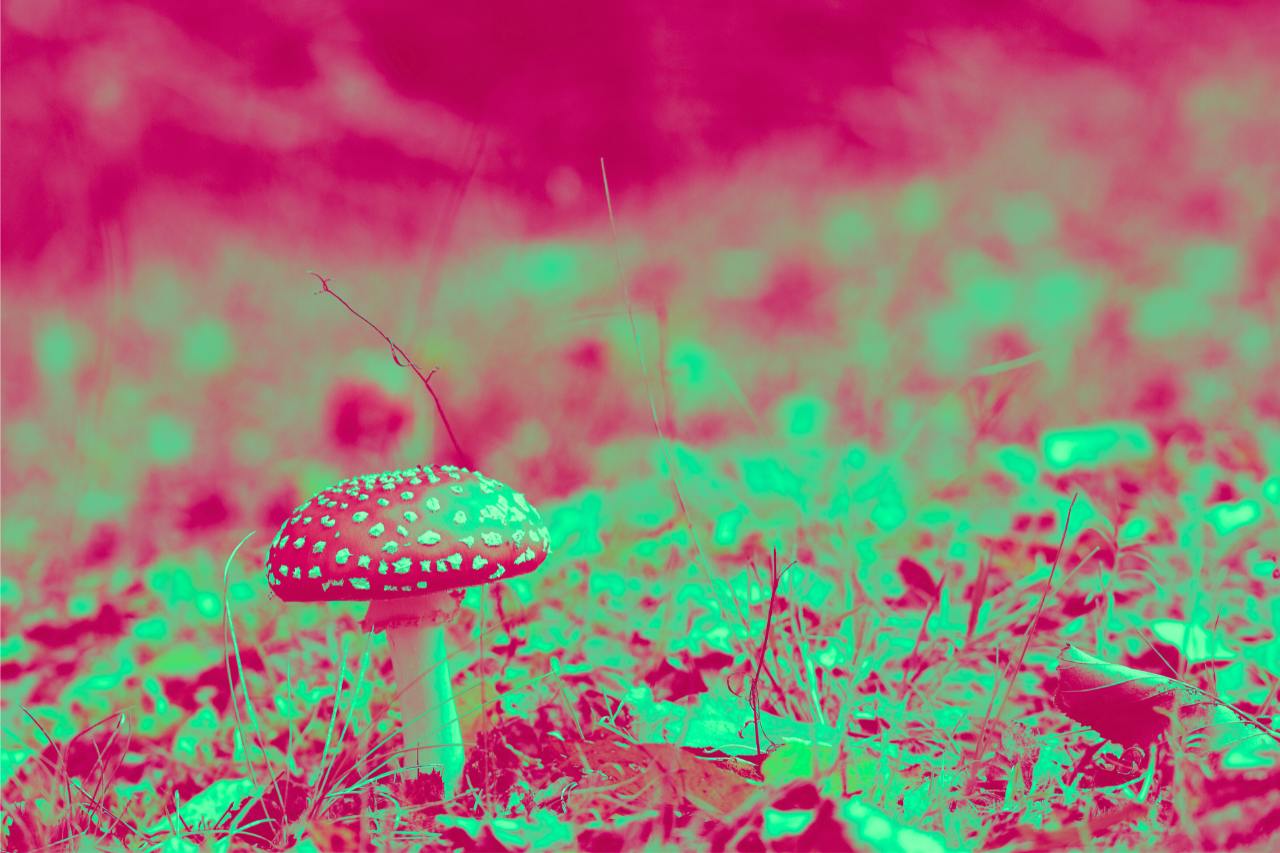The Motherhood Trip: How Psychedelics are Reshaping Maternal Experiences

As more mothers turn to psychedelic therapies in search of healing, we take a look into the transformative impact these powerful substances are having on their experiences of motherhood. This exploration sheds light on how psychedelics, once sidelined and stigmatized, are now emerging as a profound agent of change, offering new perspectives and deeper connections in the complex journey of motherhood.

Motherhood and Mental Health
The arrival of a new baby, while a joyful event, demands significant adjustments and sacrifices. These changes can disrupt a mother’s emotional balance, leading to a need for ways to stabilize their mood and manage intrusive thoughts.
It might come as a surprise, but statistics show that 45% of women experience trauma during birth, indicating that this problem is more common than many people think. A notable 10% to 15% of mothers worldwide experience postpartum depression, along with other struggles such as anxiety, fatigue, worry, and feelings of helplessness. Parenting is widely recognized as a demanding role, with each mother’s experience shaped by unique challenges and joys. Despite the love many feel through motherhood, it can also bring considerable stress and feelings of isolation.
Raising children involves constant decision-making, often accompanied by doubt and self-critique. Questions like “Am I a good parent?” or “Why aren’t my kids happy?” are common. This internal dialogue is compounded by societal pressures, which uphold an idealized image of perfection in motherhood. Such unrealistic standards can make mothers feel inadequate or unworthy.
How Can Psychedelics Help?
Historically, psychedelics have been used for their therapeutic and spiritual benefits. Shamans have long valued these substances for their capacity to reveal deeper truths about the soul. Not too long ago, psychedelic use experienced a surge during the ’60s and ’70s, only to be curtailed by strict anti-drug laws. However, recent years have witnessed a psychedelic renaissance, fueled by new research and the decriminalization of substances like psilocybin in cities such as Denver, Oakland, Santa Cruz, and Seattle.
Mothers who microdose psychedelics have shared promising anecdotes about their experiences. These substances appear to help them relax, become more present in their parenting, and heal from past traumas. Psychedelics facilitate a deeper connection with their inner selves and improve their relationships with those around them.
Many report that psychedelics lessen the impact of trauma and help purge negative thoughts, leading to a more liberated and positive mindset. This shift allows mothers to engage with their families from a perspective enriched with empathy, love, and mindfulness.
Furthermore, a significant number of mothers using psychedelic microdosing have noticed better relationships with their children and family members. This form of therapy has increased their awareness, helping them avoid repeating past parenting errors and heal old wounds.

Psychedelics as a Therapeutic Tool
A systematic review published in Frontiers in Psychiatry in 2020 highlighted LSD as a potent psychiatric treatment. The review confirmed LSD’s effectiveness in reducing symptoms of depression and anxiety across multiple studies. Additionally, it noted LSD’s potential to aid in recovering from alcoholism.
Researchers at Johns Hopkins have also explored the impact of psilocybin on depression and anxiety. Their findings indicated a significant improvement, with 67% of participants experiencing a 50% reduction in symptoms within the first week. By the end of the fourth week, 54% of the study subjects were free from depression symptoms.
Another study in 2018 investigated psilocybin’s ability to treat anxiety and enhance focus. This research found that microdosing psilocybin, often referred to as “shrooms,” not only reduced migraines but also improved productivity and focus, enhancing participants’ ability to connect with others.
These findings are part of a growing body of research that supports the therapeutic benefits of psychedelics in treating various mental health conditions.
The Psychedelic Renaissance
Globally, there is a burgeoning psychedelic renaissance as more individuals rediscover the therapeutic benefits of substances like psilocybin (magic mushrooms), LSD, and ayahuasca. Despite the legal challenges—many of these substances are still illegal in numerous countries—changes are unfolding rapidly. Several states and nations are moving toward the decriminalization or legalization of these hallucinogens. For example, Oregon in the U.S. has legalized magic mushrooms, and countries such as Jamaica, Nepal, Brazil, and the Bahamas now allow their cultivation, possession, sale, and distribution.
In Europe, Germany is making significant strides in recognizing the benefits of psychedelics. In 2020, Germany’s Federal Institute of Drugs and Devices greenlit a study to evaluate the effectiveness and safety of psilocybin in treating Treatment-Resistant Depression, marking a pivotal moment in the acceptance of psychedelics for therapeutic use.
The future of psychedelics worldwide looks exceptionally bright and promising. The ongoing research in various countries suggests that we will see an expansion in the applications of these drugs to treat a wide range of mental and physiological conditions. Psychedelics are proving to be safe, effective, and non-addictive alternatives for managing conditions such as depression, anxiety, and PTSD, all without the side effects typically associated with traditional medications. Moreover, their use supports better family dynamics by helping mothers maintain a mindset more open to the transformative experiences of motherhood.

A Path Forward
Given the wide array of benefits associated with psychedelics, it’s reasonable to anticipate that more countries will enact favorable legislation in the coming years. The significant toll that mental health issues take on global health underscores the urgency of developing effective solutions.
Parenting brings its own set of unique challenges, and no one navigates it perfectly. Each parent has their own approach to the changes and demands of motherhood. Microdosing psychedelics, such as magic mushrooms and LSD, has been shown to aid in the healing process. As research continues and legislation evolves, an increasing number of women are recognizing psychedelics as a valuable tool for managing the complexities of motherhood. These substances are helping to forge pathways for mothers to handle their roles with more grace and resilience.





Responses